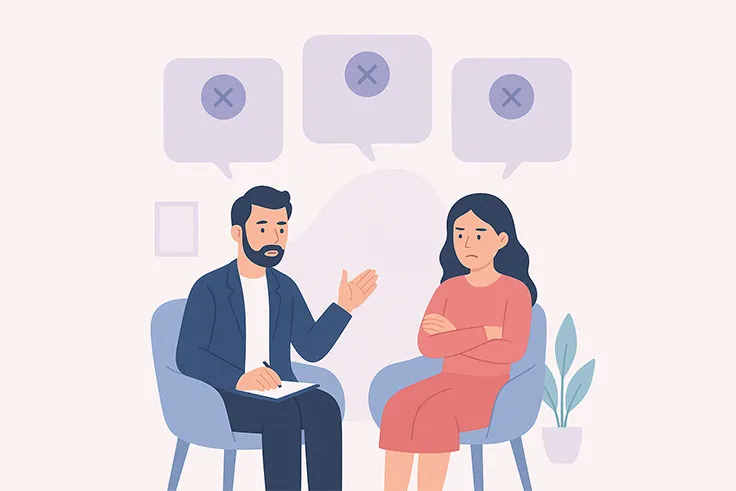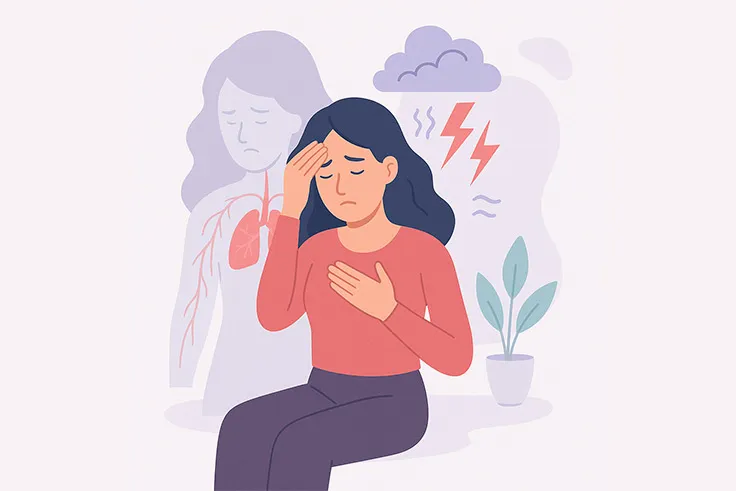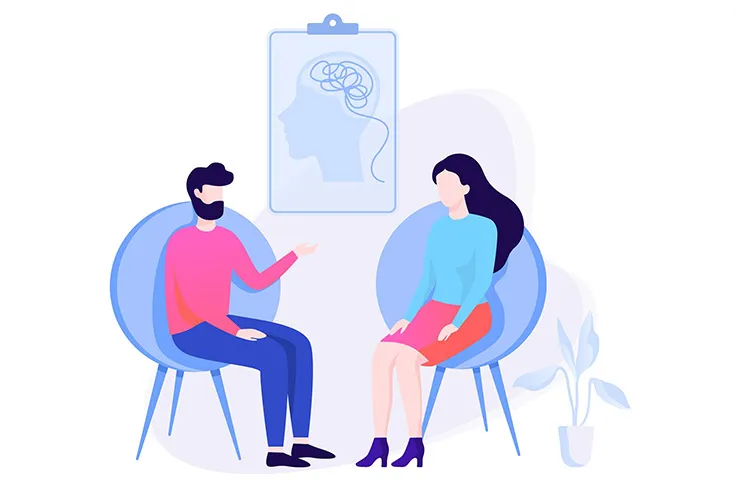
Mental Health Issues in Singapore
Mental health issues include the normal daily worries we all experience as a part and parcel of regular life as well as chronic long-term conditions that can debilitatingly harm a person’s overall wellbeing. While there are no “cures” to mental health issues, a majority of the people who have had mental health problems get the appropriate treatment for them and learn how to live with them and lead a good life.
Such mental health issues are properly defined and classified by major organizations including the American Psychological Association who have developed the Diagnostic and Statistical Manual of Mental Disorders (DSM-5). Such definitions and classifications are used by psychologists unilaterally all over the world. Mental health disorders are traditionally divided into two broad groups. The first, called psychotic disorders, involve distorted or altered perception of reality. They include disorders like schizophrenia and involve symptoms such as delusions, hallucinations, and disorganized thinking. The other sort are called neurotic disorders, which involve emotional dysregulation, anxiety and panic. Such conditions, like mood and anxiety disorders, are now called ‘common mental health problems.’ Mental health issues in Singapore are rampant, currently. According to a Singapore Mental Health Study conducted in 2016, one in seven people in Singapore have experienced a mental health disorder in their lifetime. Moreover, youths between the ages of 18 to 34 years were presented as the most vulnerable group.
Types of Mental Health Issues
Following are the major types of mental health issues and disorders:
- Anxiety Disorders: Anxiety disorders are a group of mental health disorders which include generalised anxiety disorder (GAD), phobias (for example, agoraphobia and claustrophobia), panic disorders, obsessive compulsive disorder (OCD) and post-traumatic stress disorder. Anxiety disorders can significantly impair a person’s daily functioning if left untreated.
- Somatoform Disorders: Such disorders involve physical symptoms in the absence of a physical ailment or injury. They arise out of psychological difficulties, and persons suffering from such disorders complain of physical pains of which there are no biological causes. They include pain disorders, somatization disorders, conversion disorder and hypochondriasis.
- Dissociative Disorders: These disorders involve temporary alterations of consciousness and distorted perceptions of reality. They include dissociative amnesia, dissociative identity disorder or multiple personality disorder, depersonalization and derealization disorder, and dissociative fugue.
- Mood Disorders: Mood disorders are characterized by prolonged or periodical disturbances in mood or emotional state. The most common of mood disorders is depression which is both a symptom and a disorder on its own. Another mood disorder is bipolar mood disorder which involves manic and depressive episodes. Risk of suicide attempts is the highest for those with bipolar mood disorder among all the mood disorders.
- Schizophrenia: Schizophrenia is a psychotic disorder characterized by symptoms that can be grouped into three categories: positive symptoms (delusions, hallucinations, etc.), negative symptoms (flat or blunted affect, alogia, etc.) and psychomotor symptoms (catatonia).
- Behavioural or Developmental Disorders: Behaviour or developmental disorders include oppositional defiant disorder (ODD), conduct disorder (CD) and attention deficit hyperactivity disorder (ADHD).
- Eating Disorders: These include anorexia nervosa, bulimia nervosa, and binge eating disorder. Anorexia nervosa is the most lethal mental health condition of all.
Causes of Mental Health Issues
Mental health issues generally don’t have any one specific cause. They tend to be the outcome of a complicated interaction between various causal and correlational factors. Some of them are as follows:
- Underlying physical ailments or any injuries: It is important to rule out any physical or medical causes when talking about mental health concerns.
- Childhood trauma
- Loneliness and lack of social support
- Social disadvantage, experiencing social isolation, poverty, etc.
- Severe and/or long-term stress
- Unemployment
- Drug and alcohol abuse
- Domestic violence or experiencing or witnessing any kind of abuse
- Other situational or environmental factors
- Genetics and hereditary
- Lifestyle factors like sleeping and eating patterns
Effects of Mental Health Issues
Mental health disorders, no matter how mild or chronic, have a big impact on a person’s ability to get on with his or her life. Those who live with mental health disorders or are at risk of developing one often try to keep their feelings and sentiments hidden because they are afraid of how others may react. Many mental health issues often even go undiagnosed, and while some people might be suffering from problems that are not even diagnosable, it doesn’t mean that they are not struggling every single day of their lives.
Those with chronic mental illnesses often even lose touch with reality. They may hear unexplainable voices and things that no one else does and hold irrational beliefs that may be so empowering that it may lead them to do things that they don’t want to do. Some conditions can have so much control over the one who’s suffering that they may even lose their character in the midst of trying to cope. Mental health issues can also lead to many physical health complications and other underlying health concerns. In such cases, people might need medical treatment along with therapy, counselling and/or medication. Nevertheless, most people tend to get better and lead a normal, happy life with treatment.
Tips To Boost Your Mental Health
The road to recovery from any mental health problem and the journey to keep oneself mentally fit is unique for every individual. Developing good habits and building upon the self and expanding one’s outlook on life are some of the ways that one can take care of themselves. The following are some tips and methods that you can use in order to have a speedy recovery and/or immunize yourself, in a sense, from mental illnesses:
1. Practice Self Love and Value Yourself:
You must treat yourself the way you would a loved one or a pet. To love oneself means putting in some hard work and having patience, and at the same time really taking care of oneself. Know that it is okay to feel what you are feeling. Accept yourself unconditionally and avoid self criticism and negative self talk to venture on a new journey of self discovery and increasing self awareness. Take out some time each day to do the things that you like, that which give your life meaning and make you fall deeper in love with living and feeling and breathing. So go on and, plan out and plant a beautiful garden with fountains and roses, or paint a portrait of an elf you’ve never met, or go for those tango lessons that you’ve always been aching to try out but never actually went for it.
2. Take care of your body:
The physical self is just as important as the mental self. So, make the right choices in terms of what you consume, hydrate yourself well, and work out. Sleep enough and get some rest whenever you can, and soak in the sunlight often enough. Avoid alcohol and cigarettes, in fact, try to eliminate them from your life.
3. Look For Meaningful Connection And Be With Good People:
Having more than a thousand followers on social media or over a hundred people whom you party with regularly doesn’t mean that you actually have any real friends. Recognize the people in your life that add some meaning to it, that actually make you feel warm and loved and cared for, that you really want to see and care for and nurture instead of just hangout and gossip with. These are the people that you have a real meaningful connection with, and they count as your social support. Having stable and reliable sources of social support does wonders for your mental wellbeing and, as studies have time and again shown, it reduces your likelihood of developing mental ailments.
4. Do Something For The Community:
Real happiness comes more from giving than taking. The path to contentment, as psychologists and even the great philosophers and religions of the world suggest, is one in which we not only love and care for ourselves, but also do the same for those around us. Volunteering and doing some social work regularly will help you heal in ways that you can never even imagine.
5. Practice Mindfulness and Learn Stress Management Techniques:
Mindfulness and meditation exercises are the most effective ways to take care of your mind. Moreover, stress management techniques are a necessity. Muscle relaxation and creative visualization are empirically proven ways of reducing stress and alleviating anxiety. Other than that, learning how to manage time, setting realistic goals and embracing spontaneity every once in a while are few of the ways that you can tackle stress.
6. Seek Help When You Need It:
Reaching out for help is a sign that you’re strong, and not weak. It is a sign that you’re doing something real and effective for yourself. If and when you feel that things are getting out of control (or you sense the onset of a relapse, in case you’ve seen a mental health professional before), it is important to reach out to someone who’s trained in helping. At times, we cannot handle things on our own and it’s okay. So, go ahead, and take the important step to seek help. And lastly, have hope that you’ll be well. You are going to lead a full and rewarding life, and no condition can take that possibility away from you. Know that you are in control, accept the responsibility of personal wellness, and you will do and witness wonders.
Submit a Comment
Your email address will not be published. Required fields are marked *
Related reading
What Not to Expect from Therapy: Dispelling Common Misconceptions
24 April, 2025
You finally booked your first therapy session, nerves and hope swirling inside you. Maybe you’ve heard that therapy can work wonders – and it can. In f...
It’s Not Just in Your Head: How Trauma Affects Your Body and How You Can Heal
23 April, 2025
Have you ever noticed aches, fatigue, or tension in your body after a stressful or traumatic experience? If so, you’re not alone. When we think of trauma...
How to Prepare for Your First Therapy Session: A Beginner’s Guide
5 March, 2025
Choosing to begin therapy is a courageous and empowering decision. It signifies your willingness to invest in your mental and emotional well being, it’s ...





